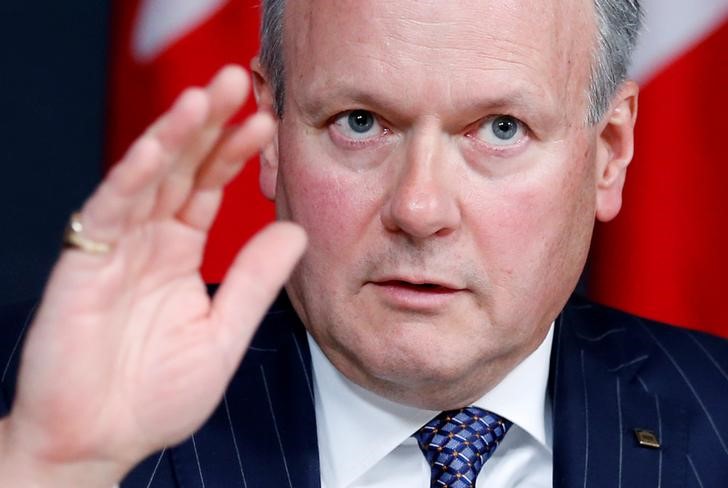(Adds comments from audience Q&A session)
YELLOWKNIFE, Northwest Territories, May 1 (Reuters) - Bank of Canada Governor Stephen Poloz said on Tuesday that the view of the Canadian economy is quite good despite record levels of household debt, and he was confident the central bank can manage the risk of that debt even as interest rates rise.
Speaking in Yellowknife, Poloz reiterated that policy makers will be cautious as they watch to see the impact on households of the bank's three rate hikes since last July, but said rates are far below the level considered neutral and will naturally rise.
"Right now things are fine, but the tension is there, the vulnerability is increasing, and since the economy is close to where it belongs, interest rates are headed higher," Poloz told the Yellowknife Chamber of Commerce.
Poloz gave no hints about the timing of the bank's next rate hike, but his upbeat tone boosted the Canadian dollar and increased market expectations for a rate hike in July to 73 percent from 68 percent before he spoke, data from the overnight index swaps market showed. BOCWATCH
Poloz said economic progress had made the bank more confident that higher interest rates would be required over time, although some monetary policy accommodation will still be needed. He reiterated that the bank's rate moves would be guided by incoming data and said it was too soon to say what impact rate hikes have had so far.
"With Governor Poloz indicating that the economy still isn't reflecting the full effects of the past three rate hikes, the Bank is likely to wait until July to pull the trigger again, and then spread out future rate hikes given the language surrounding the long lags implicit in monetary policy changes," CIBC economist Royce Mendes said in a note to clients.
Poloz said several forces were restraining Canada's economy, including new mortgage rules, uncertainty about U.S. trade policy and the renegotiation of the North American Free Trade Agreement, and a range of competitiveness challenges.
"Those forces will not last forever. As they fade, the need for continued monetary stimulus will also diminish and interest rates will naturally move higher," Poloz said in his speech.
While Canada's record high household debt makes the economy more vulnerable, the bank's cautious approach is helping to manage the risks, Poloz said.
